Top Free VPN Detection Tools Online
Virtual Private Networks (VPNs) are security services that let users browse the internet as if they were on a private network. In other words, VPNs create an encrypted “tunnel” between your device and a VPN server, hiding your true IP address and location. People use VPNs to protect their privacy on public Wi-Fi, prevent eavesdropping, and access geo-restricted content. Corporations and individuals alike rely on VPNs for privacy and secure remote access.
However, VPNs can be a double-edged sword. While great for privacy, they are also used by fraudsters and pirates to mask their identities or bypass geographic rules. Malicious users often exploit VPNs (and proxies or Tor) to commit fraud, scrape data, or evade content restrictions. This is why VPN detection matters. Businesses, streaming services, financial platforms and survey sites may need to know when a visitor is coming through a VPN to block abuse and enforce policies.
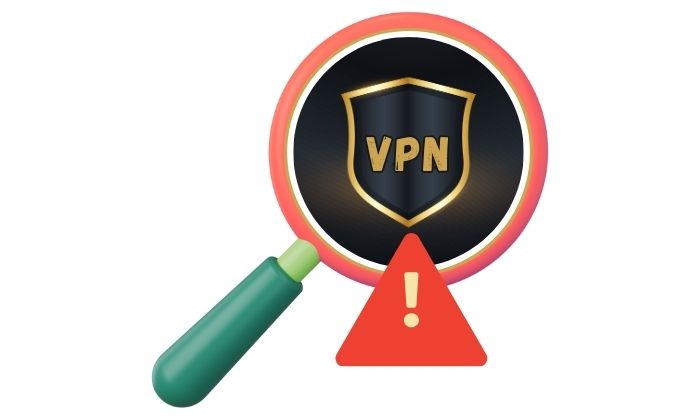
In this article we’ll explore free VPN detection tools online, compare their features, and see how accurate they are. We’ll start by reviewing why you might need such tools.
Why Use a VPN Detection Tool?
Organizations of all kinds use VPN detection to guard against hidden or malicious traffic. In practice, detecting VPN/proxy use helps in ways such as:
-
Preventing Fraud and Account Abuse. VPNs let fraudsters hide their identity. For example, attackers creating fake accounts or conducting payment fraud often use VPNs to appear as multiple users. VPN detection helps companies flag risky logins or transactions. Businesses can “automatically flag an IP address as suspicious” if it’s on a known VPN/proxy list and block it. This stops many common attacks (like stolen cards or fake signups) before they happen.
-
Blocking Malicious or Bot Traffic. Many attackers and scrapers use VPNs, proxies or data-center IPs to run bots. By checking IP details, platforms can separate “good” traffic from suspicious sources. In effect, recognizing a visitor behind a VPN or data-center IP can trigger extra checks (CAPTCHAs, multi-factor, etc.) to keep automation at bay. As Digital Element explains, flagging connections that mask the user’s location allows companies to treat such “non-human” traffic differently.
-
Enforcing Geo-Restrictions. Streaming services, online games and licensed content often must block access outside certain countries. A VPN detection tool helps catch users who try to bypass these geo-blocks. Without it, someone in London could watch a US-only show or someone overseas could get a cheaper price in a game. By flagging VPNs, a site can enforce its geographic rules. Cybersecurity experts note that “geo-blocking can reduce malicious traffic from irrelevant regions, but attackers can easily bypass it using VPNs or proxies”. Detection is the countermeasure.
-
Spotting Anonymous Traffic. VPNs, proxies and Tor are all forms of anonymizers. When someone uses them, the connection may lack the usual markers of a real user. For example, the IP might belong to a cloud provider or a VPN company instead of a home ISP. Detection tools use this info to infer that the user might be “hiding.” By detecting anonymity networks, companies can flag or filter such visitors.
In short, VPN detection is a key part of modern web security and compliance. It helps companies stay ahead of fraudsters and stay in compliance with licensing or legal rules.
How Do VPN Detection Tools Work?
VPN detection services use a mix of techniques to figure out if an IP is from a VPN or proxy. Here are the main methods behind the scenes:
-
IP Address Analysis (Data Center vs Residential). Each IP belongs to an Internet Service Provider (ISP) or hosting company. Many VPN servers use IPs from known data centers (like Amazon, Google, or VPN companies). Tools can check if an IP’s network is marked “Data Center” rather than a home ISP. For example, if an IP belongs to Amazon’s cloud, it’s likely a server/VPN, not a residential user. Geolocation databases often include a “usage type” flag for each IP (residential, business, data center, etc). Detection tools use this: home ISPs or mobile IPs usually signal normal users, while data-center IPs or hosting providers hint at VPN/proxy use.
-
ASN (Autonomous System Number) Lookup. Every IP is part of an Autonomous System operated by an organization or ISP (like AS15169 for Google). Tools query the IP’s ASN to identify who owns that IP block. If the ASN belongs to a known VPN, proxy provider or cloud host, the tool can suspect VPN usage. For example, many VPN companies register their own ASNs or use ASNs of hosting providers. Noticing that an IP’s ASN is owned by “NordVPN-AS” or “OVH SAS” can raise a red flag.
-
IP Reputation and Risk Scoring. Leading services maintain reputation databases of IPs. If an IP has been seen in fraud, abuse or has been flagged by other customers, it gets a higher risk score. IPQS, for instance, assigns risk levels to addresses that have been used for malicious activity. When checking an IP, the tool looks up this score: a high-risk rating may indicate a VPN or a bad actor. This approach helps catch IPs that might not literally be in a “VPN list” but have suspicious history (e.g. many failed logins, previous scams).
-
VPN/Proxy Databases and Machine Learning. Many tools rely on large, constantly updated lists of known VPN, proxy, and Tor IPs. Providers like IP2Proxy and IPQualityScore continually crawl the internet and partner with VPN vendors to compile these lists. For example, IP2Location offers an “IP2Proxy” database that tags IPs as VPN, open proxy, Tor exit, etc. If a user’s IP matches a database entry, it’s marked as VPN. Advanced services go further: they may use machine learning models that learn patterns of VPN traffic. IPQualityScore mentions using “an advanced machine learning network” to improve fraud detection. Essentially, they analyze millions of connections and flag anomalies or new VPN endpoints even before they’re manually listed.
In practice, most tools combine these techniques. For each visitor IP, the service might check: “Is this IP from a hosting provider ASN? Is it in our VPN list? Is its risk score high?” and so on. The result could be a simple flag (VPN vs not) or a detailed report (VPN: yes/no, proxy: yes/no, Tor: yes/no, ISP info, etc.).
Even with all these methods, VPN detection isn’t foolproof. Some VPNs use residential IPs or constantly rotate addresses, making them look like normal users. That’s why high-quality tools update continuously and use multiple signals.
Top 5 Free VPN Detection Tools Online
Below are five notable free VPN detection tools or tests you can try online. Each has its own style, features, and target users. We’ll look at what they offer and who they’re best suited for.
1. VPN Detection Tool by AbstractAPI
AbstractAPI's VPN Detection Tool offers a simple web-based VPN checker as part of its IP Intelligence suite. You enter an IP and it returns real-time results: whether it’s a VPN, proxy, or Tor node, and details like ISP, organization, and whether the IP is on a known hosting or datacenter range. The tool taps AbstractAPI’s continuously updated database, so it can flag an IP’s connection type instantly. An example API response shows fields like "is_vpn": true, "is_proxy": false, "is_tor": false, "is_hosting": true etc., giving a clear yes/no on VPN usage. AbstractAPI also offers it as a REST API for developers (with free monthly credits).
-
Pros: Real-time detection with up-to-date threat intel. High accuracy claims. Developer-friendly with a clear JSON API. Supports detection of VPNs, proxies, hosting IPs, and Tor. Free tier available with reasonable daily credits.
-
Cons: The free version has limited daily queries (you must sign up for more). It requires an API key (signup) for extended use. The tool is aimed at developers/businesses, so there’s no fancy GUI for lay users beyond the simple input box.
-
Best For: Developers and businesses looking for an easy VPN detection API integration. It’s ideal for teams that want to automate VPN checks in signup forms, payment flows, or analytics and can work within a free-tier limit.
2. VPN Detection Test by NodeData
NodeData's VPN Detection Test provides a clean web interface for quick VPN checks. Simply visit the page and enter an IP (or click a button) to see if it’s a VPN. Under the hood, NodeData leverages a vast network intelligence backend, constantly scanning “thousands of servers” and classifying millions of IPs as threats. It covers not only VPNs but also proxies, Tor, and even Apple’s Private Relay. The site highlights use cases like preventing fraud/abuse, blocking bots, and improving firewall rules. The interface is minimal – it just tells you whether the IP is flagged or not.
-
Pros: Extremely simple and fast. No sign-up or API key needed for basic use. The underlying database is large and updated in real-time, according to the FAQ. Also blocks proxies and Tor on the free page (it mentions handling “any VPN, proxy, TOR, and Private Relay blocklist task”). The text is geared towards non-technical business users.
-
Cons: There is no free public API for developers (the FAQ says the VPN API is enterprise-only). So it’s only good for one-off manual checks. The result may not include much detail – it likely just says “VPN Detected” or “Not detected.” No location info or scoring is shown. Also, being UI-only, it doesn’t easily integrate into websites or apps.
-
Best For: Quick manual checks by security analysts or site owners. If you just want a straightforward yes/no on a given IP or to quickly test your own connection, NodeData’s tool works well. It’s not aimed at developers or high-volume use, but great for spot-checking by humans.
3. VPN Detection by IP Teoh
IP Teoh VPN Detection Tool (part of IP Teoh’s IP info tools) is a no-frills, extremely lightweight detector. On one page you enter an IP (it even shows your current IP automatically) and instantly get back results. What makes Teoh unique is that it displays a bunch of IP details along with the VPN check. For example, it will show the IP’s geolocation coordinates, autonomous system number (ASN), Internet Service Provider (ISP), and a simple “VPN: True/False” flag. A security blog notes that IP Teoh provides basic IP information including geolocation, ISP, and proxy/VPN/Tor detection. The site is static HTML/JavaScript, so it’s very fast.
-
Pros: Free and requires no signup whatsoever. Very fast page load. Shows additional context (ASN and ISP) which helps validate the result. Detects VPN/proxy/Tor in one shot. Good for users who want a quick glance.
-
Cons: No API, no advanced features or analytics. It performs a single check at a time with minimal interface. Accuracy depends entirely on its internal (unknown) database; it may not catch every VPN. It also doesn’t explicitly list separate Proxy and Tor flags (just a combined “VPN” indicator).
-
Best For: Users needing an instant, one-off VPN test without signing up. For example, end-users or casual analysts who want to quickly verify if their IP (or a visitor’s IP) is seen as a VPN in mere seconds.
4. VPN Detection – IP Address Check by IPQualityScore
IPQualityScore (IPQS) is a well-known IP reputation service. Their free VPN checker is part of a larger suite of fraud tools. It advertises “99.9% accuracy” for detecting VPN IPs. In practice, it takes an IP, consults IPQS’s proxy/VPN/Tor detection engine, and returns yes/no plus additional details. On the site and API, you get risk scoring and flags like “VPN?”, “Proxy?”, “Tor?”, “Hosting?” etc. IPQS collects data on major VPN providers worldwide and even IPv6 addresses. They claim to “confidently detect any VPN connection” including big services (NordVPN, ProtonVPN, ExpressVPN, etc.). Besides the VPN check, IPQualityScore’s platform ties into fraud scoring. Its “Proxy Detection Test” can also identify Tor nodes and other anonymizers.
-
Pros: Very advanced and comprehensive. Claims nearly perfect detection rate. Covers VPN, proxy, and Tor (they even have a separate Tor detection page). Provides risk scores and a rich response so businesses can make nuanced decisions. The free tool is easy to use and backed by a major anti-fraud company.
-
Cons: The free version is manual/online only (you can test individual IPs). For automation, you’d need an API key and likely a paid plan for large volume. Also, IPQualityScore’s strict focus on fraud means it may flag more aggressively (which is good for security but could catch benign VPN users too).
-
Best For: Businesses and fraud teams who need accurate, enterprise-grade detection. Because IPQS ties into risk scoring, it’s great for finance, ad networks, and others wanting to combine VPN checks with overall fraud signals. It’s less aimed at casual end-users.
5. Proxy & VPN Detection by IP2Proxy
IP2Proxy is part of the IP2Location family and offers a broad proxy-detection service. Their site lets you do a “free demo lookup” on one IP at a time. IP2Proxy categorizes IPs into many types: VPN, open proxy, web proxy, Tor exit node, search engine bot, data center (hosting), residential proxy, etc. In other words, it not only flags VPNs but also identifies other anonymity networks and hosting IPs. The website advertises that it can detect anonymous proxies including VPNs, residential proxies, Tor nodes, and data centers. You can use their Web Service or download a database for on-premise use.
-
Pros: Very detailed classification of IPs – more categories than most tools. Owned by a reputable geolocation provider (IP2Location). Offers multiple ways to use it (web, API, database). The free lookup is quick, and you can see if an IP is marked as “VPN” or “RES” (residential proxy), etc. Also distinguishes data-center IPs (useful for blocking hosting providers).
-
Cons: The free demo only checks one IP at a time. The interface is not as user-friendly or explanatory as some others. To integrate into your own systems, you will need a paid account or the database license (the “widget” or API). The free check doesn’t show risk scores or much context beyond the category.
-
Best For: Businesses that want fine-grained control over different proxy types. For example, a content provider might choose to block data-center proxies (DCH) but allow some residential proxies (RES). IP2Proxy is suited for developers who want to incorporate a comprehensive proxy/VPN database, especially in geo-restriction enforcement scenarios.
Comparison Table: Top VPN Detection Tools
|
Tool Name |
Free Version |
Detects VPN |
Detects Proxy |
Detects Tor |
API Support |
|
AbstractAPI |
✅ |
✅ |
✅ |
✅ |
✅ |
|
NodeData |
✅ |
✅ |
✅ |
❌ |
❌ |
|
IP Teoh |
✅ |
✅ |
✅ |
❌ |
❌ |
|
IPQualityScore |
✅ |
✅ |
✅ |
✅ |
✅ |
|
IP2Proxy |
✅ |
✅ |
✅ |
❌ |
✅ |
How Accurate Are These Tools?
No VPN detection tool is 100% foolproof. Their accuracy depends on several factors:
-
Changing VPN IPs: VPN providers constantly rotate their server addresses. As AbstractAPI notes, “VPN providers regularly rotate their IP pools, making it hard to keep static lists accurate”. Some even use residential IP ranges, which blend in with normal user traffic and evade detection. Tools that don’t update in real-time can miss newly assigned VPN IPs.
-
Sophisticated VPN Tech: Advanced VPNs can mimic normal browsing patterns to avoid detection. Some tunnel through HTTPS or use residential IP addresses. This makes simple heuristics less reliable. It’s a constant cat-and-mouse game between detection services and VPN developers.
-
False Positives: Not every VPN user is malicious. Business travelers, journalists, or privacy-conscious users may legitimately use VPNs. Blocking them could hurt user experience. As one guide warns, “Not all flagged users are trying to hide... Blocking these users could lead to a poor customer experience”. So overly aggressive tools might inconvenience real users.
-
Data Quality: Free or public databases can be outdated or incomplete. A slow-updating list might wrongly mark a safe IP as a VPN (false positive) or miss a VPN server (false negative). Accuracy improves when services update their data frequently or cross-check multiple sources (as NodeData claims to do in real time).
Because of these challenges, best practice is to cross-verify with more than one tool when possible. A single flag shouldn’t be the sole basis for blocking a user. Combining signals – such as IP reputation, device fingerprinting, or user behavior – usually yields better results. As IPQS and others imply, VPN detection is just one part of a bigger fraud prevention strategy.
In general, specialized services (like IPQualityScore or IP2Proxy) tend to be more accurate than free static lists, because they invest in constant updates and machine learning. But even they admit some cases slip through. Always treat these tools as probabilistic defenders, not magical detectors.
Use Cases for VPN Detection
VPN detection finds use in many real-world scenarios:
-
E-commerce and Fraud Prevention: Online stores and payment processors often see fraudsters using VPNs to make transactions. By detecting VPN usage during checkout or signup, businesses can trigger extra verification (CAPTCHA, 2FA) or blocks for risky orders. For example, a company could “automatically flag an IP as suspicious” and reject it if it’s known to be a VPN. Many fraud teams integrate VPN checks into their anti-fraud rules to prevent stolen credit cards and chargeback fraud.
-
Streaming Platforms (Geo-Blocking): Services like Netflix, BBC iPlayer or online gaming often enforce regional restrictions. Users use VPNs to bypass these geo-blocks and access content from any location. Solutions like GeoComply’s GeoGuard exist precisely for this – to stop VPN-based “geo-piracy”. GeoGuard even reports 98% accuracy for spotting VPN connections on streaming services. The streaming industry widely considers blocking unauthorized VPN users a “no-brainer” to protect licensing deals.
-
Gaming Platforms: Online games and gaming storefronts may region-lock game purchases or enforce local pricing. Cheaters might also use VPNs to join servers in other regions for advantage or hide from bans. Game companies use VPN detection to restrict these cases. In fact, major gaming companies use similar geolocation compliance tools (GeoComply lists “Gaming” as a key industry for its solutions).
-
Online Surveys and Market Research: Polling and survey providers need genuine participants from target regions. VPN use can invalidate responses (e.g. someone outside the survey’s geography pretending to be inside). By detecting VPNs, survey platforms ensure each respondent is where they claim to be. It also helps prevent one person submitting multiple entries under different VPN IPs.
-
Advertising and Marketing (IVT Prevention): Ad networks and analytics platforms worry about invalid traffic (IVT). A high number of ad views or clicks coming from VPNs/proxies can signal bot farms or click fraud. IPQualityScore explicitly links VPN/proxy detection to preventing ad fraud and IVT. Marketers may filter out VPN traffic to ensure their geo-targeted ads reach actual users and to avoid paying for fraudulent impressions.
These use cases underscore why VPN detection tools are in demand. Whether it’s protecting revenue, enforcing legal rules, or ensuring data quality, knowing when users hide behind VPNs is crucial for many online services.
Final Thoughts
Each of the tools above has its niche. AbstractAPI and IPQualityScore are full-fledged APIs ideal for developers and large businesses that need scalable, accurate checks (and they do offer free tiers to try out). NodeData and IP Teoh excel at quick manual tests with minimal fuss – perfect for small teams or curious users. IP2Proxy offers deep analytics on IP types, which can help businesses finely tune their blocking rules (for instance, blocking data-center proxies but allowing some residential proxies).
For a business simply preventing fraud or enforcing geo-blocks, IPQualityScore and AbstractAPI stand out for their accuracy and support (they include Tor and mobile proxies). For a quick DIY test, NodeData and Teoh are very convenient. In practice, many organizations use a combination: an online VPN tester for initial investigation and then integrate an API into their site for automatic checking.
We encourage readers to try these tools (all have free versions or demos). Plug in an IP address and see what the tool reports. Compare how the results differ between services – this will give you insight into their coverage and accuracy. If you run an online service, consider using at least one of these APIs to strengthen your security or compliance. And if you do, please share your feedback on what worked best!
FAQs
Can VPN detection tools detect residential VPNs?
Not easily. Most tools rely on databases of known VPN server IPs and heuristics like data-center IP ranges. A VPN that uses a residential ISP’s IP (so-called “residential VPN”) will look just like a normal home user. As one expert notes, some VPNs “even lease residential IPs, which blend in with regular users”. In practice, residential VPNs often evade standard detection and require more advanced, behavior-based methods to spot.
Are these VPN detection tools free forever?
Typically, the tools above offer free tiers or demos, but with limits. For example, AbstractAPI gives free monthly calls, NodeData offers a free web check, and IP2Proxy provides a one-off demo lookup. However, if you need heavy usage or API integration, you will likely need to upgrade to a paid plan. Note that some providers no longer offer completely free APIs – for instance, NodeData’s FAQ states that its VPN detection API is now “only open to enterprise clients”. Always check the provider’s documentation for any usage limits or commercial terms.
How do VPN detection tools handle IP rotation?
Good services update their data in real time or frequently. For instance, NodeData emphasizes that its proxy/VPN database is updated continuously. This means new VPN IPs or changed IPs get added to the list as they appear. Similarly, IPQS and AbstractAPI claim to constantly refresh their threat intelligence. Even so, there’s always a short lag: a brand-new VPN server might slip through detection until the next update cycle. Some tools use machine learning to spot anomalies and mitigate this, but no tool can catch 100% of rapidly rotating IPs instantly.
Which is the most accurate VPN detection tool?
It’s hard to crown a single winner. IPQualityScore advertises “99.9% accuracy” for its VPN checker, and specialized services like GeoGuard (used by major streaming companies) also claim very high detection rates. In general, the accuracy depends on how comprehensive and up-to-date the IP database is, and how sophisticated the analysis algorithms are. In practice, you may want to test a few tools yourself. For critical applications, it’s wise to use more than one detection method (for instance, checking with multiple services or supplementing IP checks with device fingerprinting) to reduce false positives or negatives.
Suggestions for you
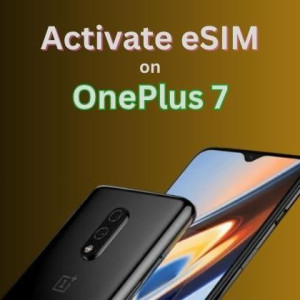
Is OnePlus 7 eSIM Compatible? - How to Activate eSIM on OnePlus 7 Phone Models
737 Views
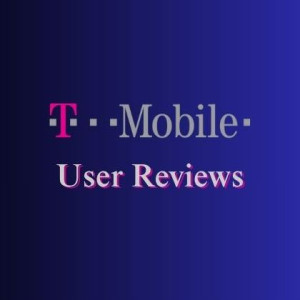
T-Mobile ISP Reddit Reviews: What Users Are Saying About T-Mobile's Internet Availability and Speed
243 Views

Best iPhone Mobile Data Plans in US, UK, Canada and Australia
246 Views
How to Activate eSIM on Pixel 3 and Pixel 3a (Step-by-Step Guide)
454 Views

How to Activate eSIM on iPhone 11, iPhone 11 Pro and iPhone 11 Pro Max
415 Views
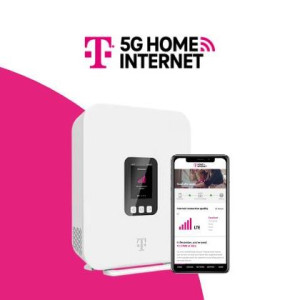
T-Mobile Home Internet: All About Data Cap and Data Pass Price
626 Views
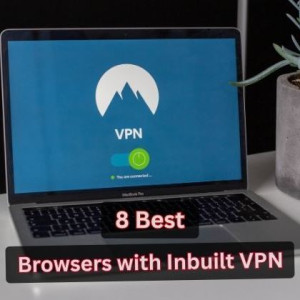
8 Best Inbuilt VPN Browsers (Free & Paid) for Secure Browsing
137 Views

Cheap MTN Data Code - Get the Cheapest MTN Data Plan in Nigeria
71260 Views

AK Data VTU – Buy Cheap MTN Data
1008 Views
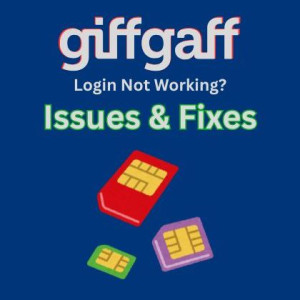
Giffgaff Log In Not Working? Common Issues, Fixes and Giffgaff Contact Details
203 Views


